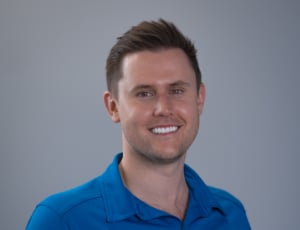
Amblyopia – Beyond 20/20 – COPE ID 99912-FV
Presented by Dr. Paul Rollett
1 hour
Amblyopia is more than just reduced visual acuity – it affects motor function, reading fluency, and psychosocial well-being. In this course, Dr. Paul Rollett will provide an in-depth exploration of amblyopia, covering historical treatments, emerging binocular approaches, and the latest research on neural plasticity. This session will also examine amblyopia’s broader impacts on eye-hand coordination, fine and gross motor skills, and psychosocial development. Attendees will gain practical insights into emerging treatment protocols, interdisciplinary collaboration, and the evolving role of vision therapy in amblyopia rehabilitation.
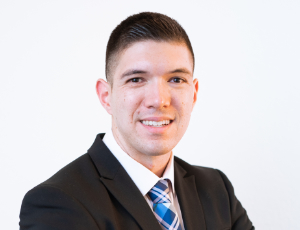
Nutrition & Eye Health: A Comprehensive Guide for the Practicing Optometrist – COPE ID 99913-PH
Presented by Dr. Aaron Neufeld
1 hour
Dr. Neufeld goes in great detail about ocular nutrition and integrative eyecare. This course will give ODs a deeper understanding about how dietary factors play a role in eye care and healthcare for patients.
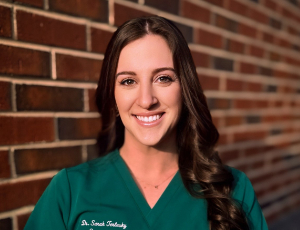
Light Therapies in Optometry – Non-COPE
Presented by Dr. Sarah Terlesky
0.5 hours
This course provides a comprehensive overview of Intense Pulsed Light (IPL) and Low Level Light Therapy (LLLT) in the diagnosis and management of ocular surface disease and dermatologic conditions encountered in optometric practice. Emphasis will be placed on clinical mechanisms, patient selection, safety protocols, treatment outcomes, and implementation strategies to improve patient care and practice efficiency.
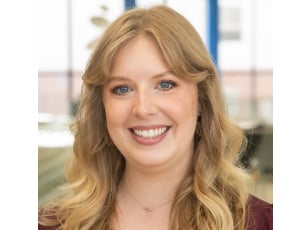
Advances in Eyelid Lesion Management and Lacrimal Procedures for Optometrists – COPE ID 99840-SP
Presented by Dr. Jacqueline Fiddler
2 hours
Eyelid and adnexal lesions can present with a wide variety of clinical signs, making accurate diagnosis and effective management essential for patient outcomes. This course provides a comprehensive review of the anatomy of the eyelid and skin, focusing on lesion origin and differentiation. It also discusses appropriate medical and surgical management options for common lesions, such as epidermoid cysts, papillomas, and chalazia. The course will include techniques for infiltrative injections, suturing, lesion excision, and post-operative care. A special emphasis will be placed on distinguishing chalazia from their differentials, including sebaceous carcinoma and preseptal cellulitis. Participants will gain knowledge in surgical procedures like incision and curettage, radiofrequency excision, and lacrimal system procedures. This course is designed to help eye care professionals confidently and safely manage various eyelid lesions from diagnosis through treatment.
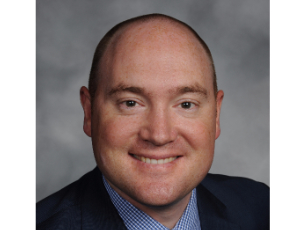
Glaucoma Case Files in Diagnostic Interpretation – COPE ID 99834-GL
Presented by Dr. Nathan Lighthizer
2 hours
Glaucoma is one of the most common vision threatening disorders that we see in our exam chair on a day in and day out basis. Clinical and scientific evidence supports the use of numerous tests to help in the diagnosis, management, and follow-up of glaucoma. This interactive glaucoma lecture will review some of the classic tests for glaucoma including IOP measurement, gonioscopy, VF and ONH imaging. It will also introduce and give participants the opportunity to get hands-on with the newer technology including OCT, VEP and pERG.
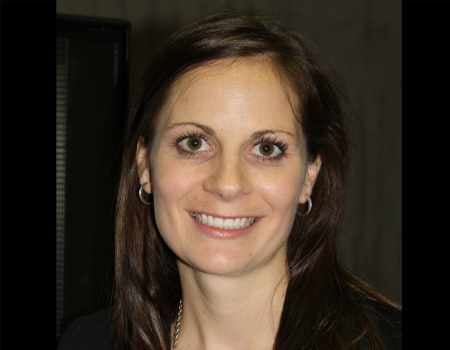
Contemporary Management of Primary Open Angle Glaucoma – COPE ID 100278-GL
Presented by Dr. Sarah MacIver
1 hour
This 1-hour lecture will explore modern challenges in managing primary open-angle glaucoma (POAG) using a case-based approach. It will highlight contemporary medical therapies, including new medications like selective Rho kinase inhibitors and prostaglandin analogs, which offer improved efficacy and fewer side effects. Additionally, it will address the impact of preservatives such as benzalkonium chloride (BAK) on ocular surface disease (OSD) and provide strategies to reduce these effects. The session will also cover interventional options, such as laser treatments and minimally invasive glaucoma surgeries (MIGS), to optimize patient outcomes.

Laser Procedures for the Optometric Physician – COPE ID 98200-LP
Presented by Dr. Komal Patel
2 hours
This course will discuss the use of laser energy to treat open and closed angle glaucoma and posterior capsular opacification. Indications, pre-operative and postoperative assessment, procedure, and complications for selective laser trabeculoplasty, laser peripheral iridotomy, YAG capsulotomy, and laser floater treatment is discussed.

Clinical Strategies for Oral TPAs in Eye Care – COPE ID 98198-PH
Presented by Dr. Sarah MacIver
2 hours
This course provides an in-depth exploration of the clinical application of oral therapeutic pharmaceutical agents (TPAs) in managing anterior segment diseases. Participants will learn to leverage electronic prescribing tools, apply evidence-based strategies for drug selection, and navigate considerations for special populations and adverse drug reactions. Through case-based examples, the course emphasizes the importance of accurate diagnosis, patient-specific management, and adherence to antimicrobial stewardship principles.

Myopia Revisted: A Practical Learning Session – COPE ID 98199-GO
Presented by Drs. Langis Michaud, Debbie Jones, Teddy Chow
2 hours
This lecture offers a practical approach to myopia management that will enable participants to better understand the principles that contribute to the onset and progression of myopia, explore the various management methods and understand their benefits and limitations. Speakers will also discuss the management of clinical cases. Participants will appreciate that there are different approaches to the same scenario, and realize that myopia management starts one child at a time.
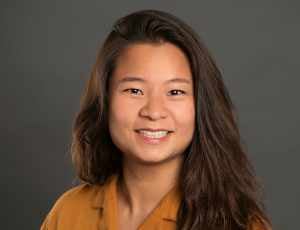
Nerves Don’t Feel, Cornea Don’t Heal – A Review of Neurotrophic Keratitis – COPE ID 98920-TD
Presented by Dr. Sophia Leung
1 hour
No pain, no gain they say. With the cornea, that is sadly true when it comes to nerve damage. What happens when corneal nerves don’t feel? In a case-based format, this talk covers the course of poor healing corneas due to neurotrophic keratitis. Early stages to advanced stages, and how optometrists have a crucial role to play will be discussed.

Posterior Segment Puzzles Secondary to Systemic Disease – COPE ID 98201-SD
Presented by Dr. Komal Patel
1 hour
Utilizing a grand rounds format, cases of patients who presented with posterior segment ocular disease will be discussed. All cases required further investigation and ultimately had systemic associations.

Rapid Fire Cornea Survival Tips – COPE ID 98933-TD
Presented by Dr. Sophia Leung
1 hour
How many times have we looked at a corneal lesion and thought to ourselves, what is happening here? This lecture, in a rapid-fire case-based format, will cover several tips, tricks, and pearls that will help practitioners navigate through a variety of corneal diseases that may be commonly encountered. Understanding the cornea and its behaviors can give clues to how to manage the underlying conditions.

Video Grand Rounds: Introduction to Optometric Office-Based Surgery – COPE ID 98197-SP
Presented by Dr. Rich Castillo
2 hours
A video based 2-hour grand rounds-style introduction to optometric office-based surgery. Discussion will center on common in-office surgical procedures performed in the primary eye care setting including dermatologic excisions, biopsies, lacrimal procedures and office-oculoplastic for lid malpositions. Techniques will be demonstrated and analyzed.
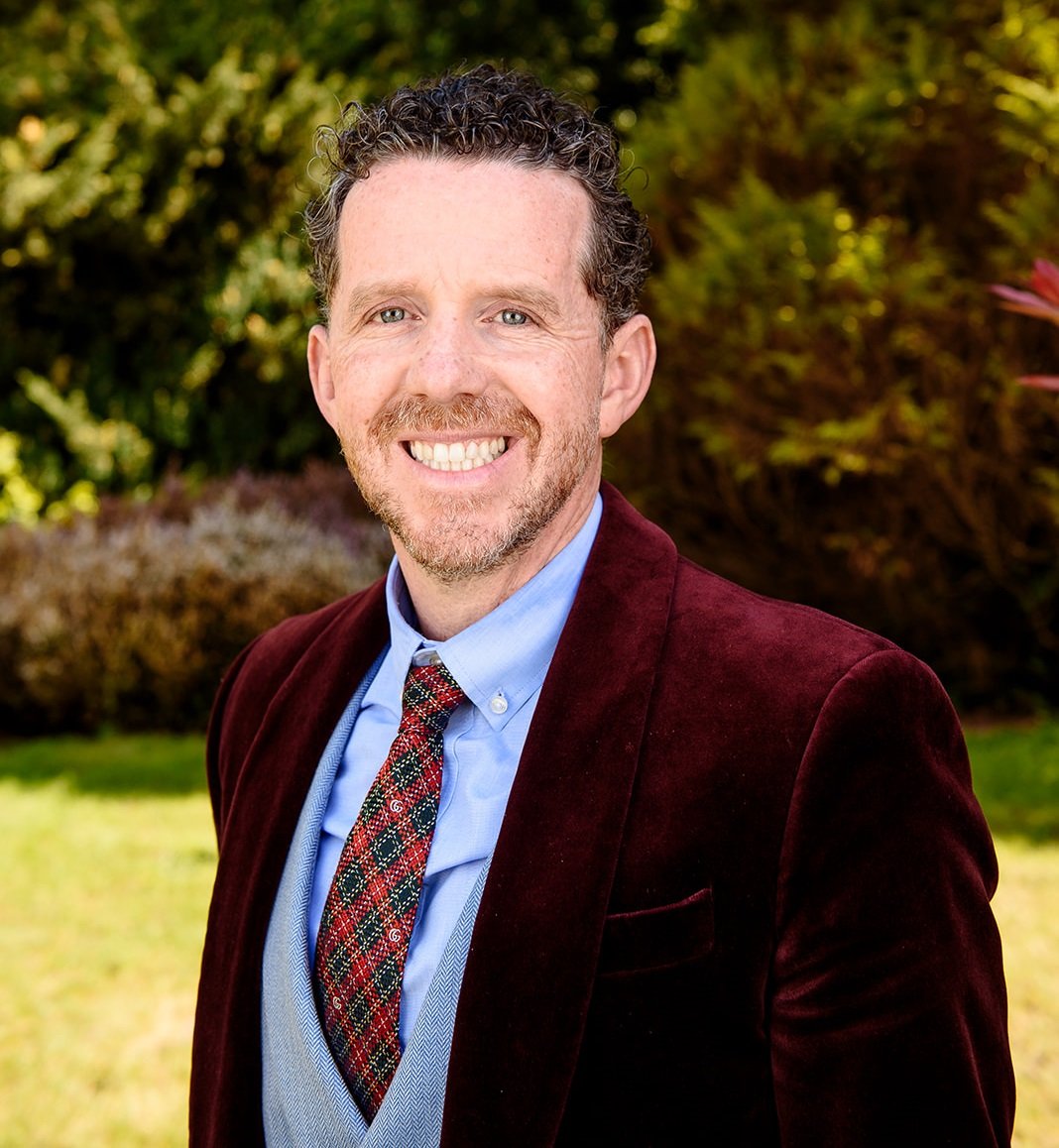
LIFE – Lowering Inflammation for Everyone – COPE-ID 94279-TD
Presented by Professor John Nolan
1 hour
This course presents the newest information on the link between macular (eye) carotenoids and oxidative stress, and how these nutrients can reduce systemic inflammation, with positive implications eye and brain health, and cardiometabolic disease.

Metabolic, Nutritional and Endocrine Aspect of Concussion Recovery – What an Optometrist Should Know – COPE ID 92690-NO
Presented by Dr. Paul Hrkal
2 hours
Concussions are one of most common neurological injuries in the world and new research is being published monthly with a direct impact on optimal clinical management. In this lecture, Dr Hrkal will condense and summarize the latest literature on the pathophysiology of mild Traumatic Brain Injury (mTBI) with a specific focus on the nutritional, inflammatory endocrine aspects. With a specific focus on the most common mTBI symptoms and presentations, Dr Hrkal will present his functional medicine approach on hormonal, nutritional and supplemental interventions and how they can improve clinical outcomes for optometrists.
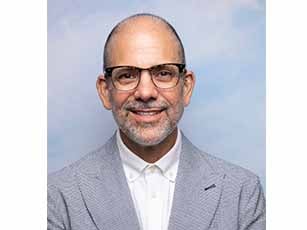
Generic versus Brand Name – When Does It Really Matter? – COPE ID 92688-PH
Presented by Dr. Marc Bloomenstein
1 hour
This course will answer the age-old question, “Can I get a generic?” Not all drops are created the same and thus each needs to be considered. This course will help to create a decision tree for the clinician.

Have Glaucoma? Would You Like a Side of Dry Eye With That? – COPE ID 92759-GL
Presented by Dr. Mahnia Madan
1 hour
The glaucoma-related ocular surface disease is a significant and often underdiagnosed ocular comorbidity that can affect a patient’s quality of life. This lecture will provide an in-depth review of the various treatment options for not only managing glaucoma but also preserving the ocular surface.

Surgical Procedures in Optometric Practice – COPE ID 92758-SP
Presented by Dr. Blair Lonsberry
1 hour
The ever-expanding scope of practice for optometrists is seeing the need to perform small surgical procedures in optometric practice becoming more commonplace. The following interactive course will explore the common eyelid lesions that are typically removed by optometrists, the most common means of removal, and pre-post operative considerations.

If Not Primary Then Secondary Glaucoma: What You Need to Know – COPE ID 92689-GL
Presented by Dr. Marc Bloomenstein
1 hour
The diagnosis and management of Primary Glaucoma is well documented and taught. However, the Secondary glaucomas carry as big a risk for patients. This course will focus on looking for Secondary Glaucoma, managing the disease and new treatment options.

Beyond the Basics: Advanced Concepts in Glaucoma Management – COPE ID 91352-GL
Presented by Dr. Mahnia Madan
1 hour
While much progress has occurred in the diagnosis and management of POAG, the exact pathogenesis and a cure remain elusive. This presentation highlights new concepts in the management of glaucoma and the application of modern technology and therapy in the management of this disease.

What Do I Do With This Cornea, Doc – COPE ID 85299-TD
Presented by Dr. Marc Bloomenstein
1 hour
The cornea, the thin, convex, transparent window that acts as the external lens of the eye is in a word; awesome. This course looks at the inherited anomalies and the acquired which can limit this tissue ability to focus on what is important-putting a clear image on the retina.
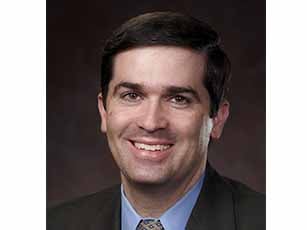
Believe It or Not!: Amazing Eye Tech, Astounding Therapies, & Pioneering Procedures – COPE ID 85292-GO
Presented by Dr. Christopher Wroten
2 hours
The goal of this course is for the Practitioner to gain an increased appreciation for current and emerging treatments and technologies in eye care which will impact how patients will be diagnosed, treated, and cared for in the ever-evolving world of eye care.

Uveitis 2023 – COPE ID 84624-TD
Presented by Dr. Andrew Rixon
1 hour
Uveitis is a common problem seen in daily optometric practice. This course will review foundational uveitis concepts, traditional therapies, as well as update the attendees on emerging and future therapies that will enhance their ability to care for patients presenting with this condition.

Common Quotes in Glaucoma Care: Buy, Sell or Hold – Part II – COPE ID 84623-GL
Presented by Dr. Andrew Rixon
1 hour
There is an abundance of common quotations in the glaucoma universe that have led to their acceptance as dogma within clinical practice. Unfortunately, widescale and out of context acceptance of these quotes often leads to misunderstandings/oversimplifications that can negatively influence glaucoma care in the primary care setting.

Common Quotes in Glaucoma Care: Buy, Sell or Hold – Part I – COPE ID 84622-GL
Presented by Dr. Andrew Rixon
1 hour
There is an abundance of common quotations in the glaucoma universe that have led to their acceptance as dogma within clinical practice. Unfortunately, widescale and out of context acceptance of these quotes often leads to misunderstandings/oversimplifications that can negatively influence glaucoma care in the primary care setting.

Evolution of Artificial Tears – Non-COPE
Presented by Dr. Clara Chan
1 hour
Dr. Clara Chan will present Evolution of Artificial Tears from DEWS II. See the science of 8000+ Trehalose publications for this unique natural bioprotectant that protects lipids and proteins in cell membranes. Trehalose is used in transportation of grafts and organs. Thealoz Duo restores the normal ecosystem of the eye.
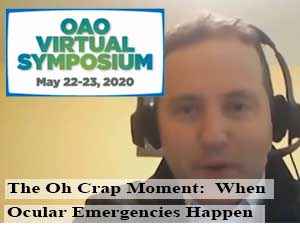
The Oh Crap Moment: When Ocular Emergencies Happen – COPE ID 85641-GO
Presented by Dr. Michael Cooper
1 hour
The landscape of emergencies in eye care is an emerging area where Optometry will be poised to hold an increasing role as part of the healthcare team. Subsequently, these injuries warrant further examination and our attention using evidence-based medicine to bolster case studies provided during the presentation. Learn how to effectively identify, treat, and confidently co-manage with specialists these relatively straightforward to difficult-to-treat emergencies in eye care.
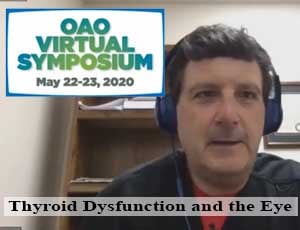
Thyroid Dysfunction and the Eye – COPE ID 85619-SD
Presented by Dr. Greg Caldwell
1 hour
This course unravels and illustrates the close association between the eye and thyroid dysfunction. Clinical features, laboratory testing, clinical examination, and therapeutic options will be reviewed. The ocular manifestations and management of this condition will be discussed.
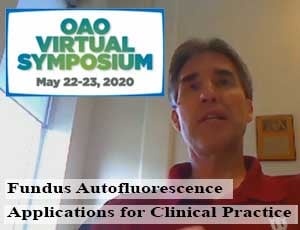
Fundus Autofluorescence Applications for Clinical Practice – COPE ID 85006-TD
Presented by Dr. Brad Sutton
1 hour
This course covers the science of fundus autofluorescence and many clinical applications for use of this technology. Covered conditions include AMD, ICSC, ONH drusen, Plaquenil toxicity, glaucoma, and retinal macular dystrophies.
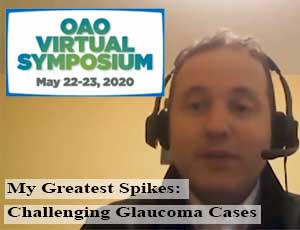
My Greatest Spikes: Challenging Glaucoma Cases – COPE ID 86674-GL
Presented by Dr. Michael Cooper
2 hour
The world of Glaucoma diagnosis and treatment is evolving in front of our eyes which can be quite daunting even for the most seasoned eye care professional. Subsequently, this disease state warrants further examination and review of the current guidelines from the literature. Learn how to appreciate the gross to subtle nuances in presentation, testing analysis, and treatment to successfully manage these cases.
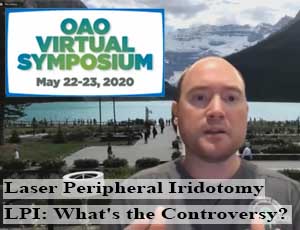
Laser Peripheral Iridotomy LPI: What’s the Controversy? – COPE ID 85104-LP
Presented by Dr. Nathan Lighthizer
1 hour
The use of laser energy, specifically laser peripheral iridotomy LPI, has been the standard of care for pupillary block narrow angles for many decades. It is an accepted and relatively safe procedure performed by ophthalmologists nationwide, and optometrists in the states that allow ODs to perform anterior segment laser procedures. Recently, evidence and arguments have emerged regarding LPI treatments possibly being overutilized. This interactive 1 hour lecture will review and update clinical evidence and literature regarding laser peripheral iridotomy for narrow angle glaucoma.
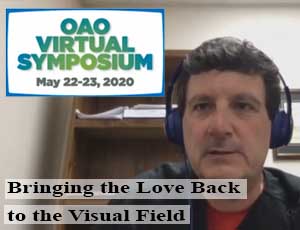
Bringing the Love Back to the Visual Field – COPE ID 85618-GO
Presented by Dr. Greg Caldwell
1 hour
The OCT has become an important diagnostic instrument in eye care. The visual field is still equally important in the diagnosis and treatment of ocular disease. Advances in software and visual field testing have clouded the waters. This course reviews how to use the visual field in your office with proper and efficient techniques. Learn which test is fitting and increase your confidence in interrupting the visual field. Numerous visual fields will be reviewed via a case presentation style.
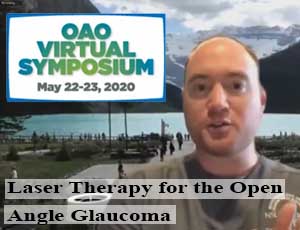
Laser Therapy for the Open Angle Glaucoma – COPE ID 85101-GL
Presented by Dr. Nathan Lighthizer
1 hour
The use of laser energy to treat open angle glaucoma has been used by optometric physicians in certain states for over a decade now. This interactive presentation will review and update these ophthalmic laser procedures. Indications, contraindications, risks, benefits, potential complications, pre- and post-operative management, and procedural techniques will be discussed regarding ALT and SLT.
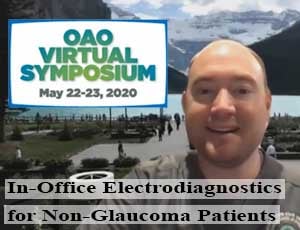
In-Office Electrodiagnostics for Non-Glaucoma Patients – COPE ID 85086-TD
Presented by Dr. Nathan Lighthizer
1 hour
Electrodiagnostics can be a confusing, intimidating area in optometry. These tests VEP, ERG, mfERG, EOG are often the key to diagnosis and prognosis of a number of inherited and acquired conditions. Although in the past most optometrists didn’t perform these tests on a regular basis, that is now changing with evolving technology, and this testing is now being incorporated into private practice optometry. Knowing when to refer, and most importantly, which test to refer for can be critical for a patient’s diagnosis and management. This interactive one-hour lecture will review these concepts in electrodiagnostics.
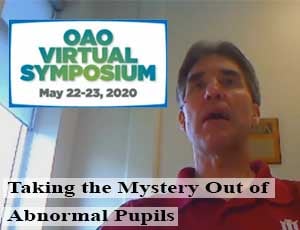
Taking the Mystery Out of Abnormal Pupils – COPE ID 85008-NO
Presented by Dr. Brad Sutton
1 hour
This course covers a host of conditions that can lead to abnormal pupil function. The anatomy of both the parasympathetic and sympathetic pupillary pathways is discussed. Specific entities that are covered include pharmacological involvement, Adies Tonic pupil, third nerve palsies, Argyll-Robertson pupil and others.

Succession Planning for Optometrists – Non COPE
Presented by Jim Chagnon, CPA, CA, TEP
1 hour
This one-hour course covers the optometry profession; succession planning overview; succession planning considerations including timing, options, post-exit and the team; and your next steps.
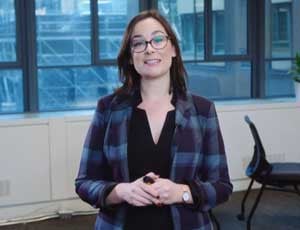
Human Resources Management for Optometrists – Non COPE
Presented by Rachel Kidney, BSc, MSc, PhD
1 hour
This one-hour course covers recruitment, selection and retention; performance management; compensation and total rewards; health and safety; and scheduling.
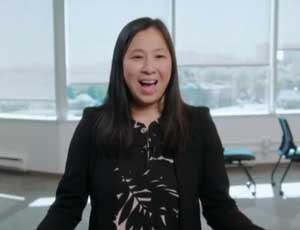
Tips on Making Your Business Successful – Non COPE
Presented by Bonnie Tan, CPA, CA
1 hour
This one-hour course covers cash flow and business development, inventory management, financial fluency, industry standards and benchmarking, and preventing fraud.

Tax Planning for Optometrists – Non COPE
Presented by Nick Korhonen, CPA, CA
1 hour
This one-hour course covers tax on split income, passive income changes, tax efficient investment products, recent tax updates, capital gains planning and HST.
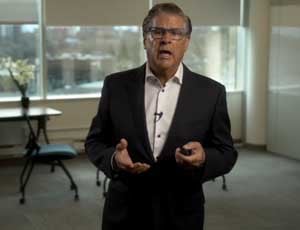
Introduction to Financial Planning for Optometrists – Non COPE
Presented by Doug McLarty, FCPA, FCA, CFP, ICD.D, TEP
1 hour
This one-hour course covers the components of a good financial plan, debt repayment, personalized investment strategy, retirement and estate planning.
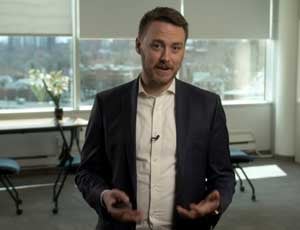
Introduction to Tax for Optometrists – Non COPE
Presented by Nick Korhonen, CPA, CA
1 hour
This one-hour course covers federal and Ontario tax overviews, tax filing requirements, an introduction to integration, incorporation, tax deferral and selling your business.


